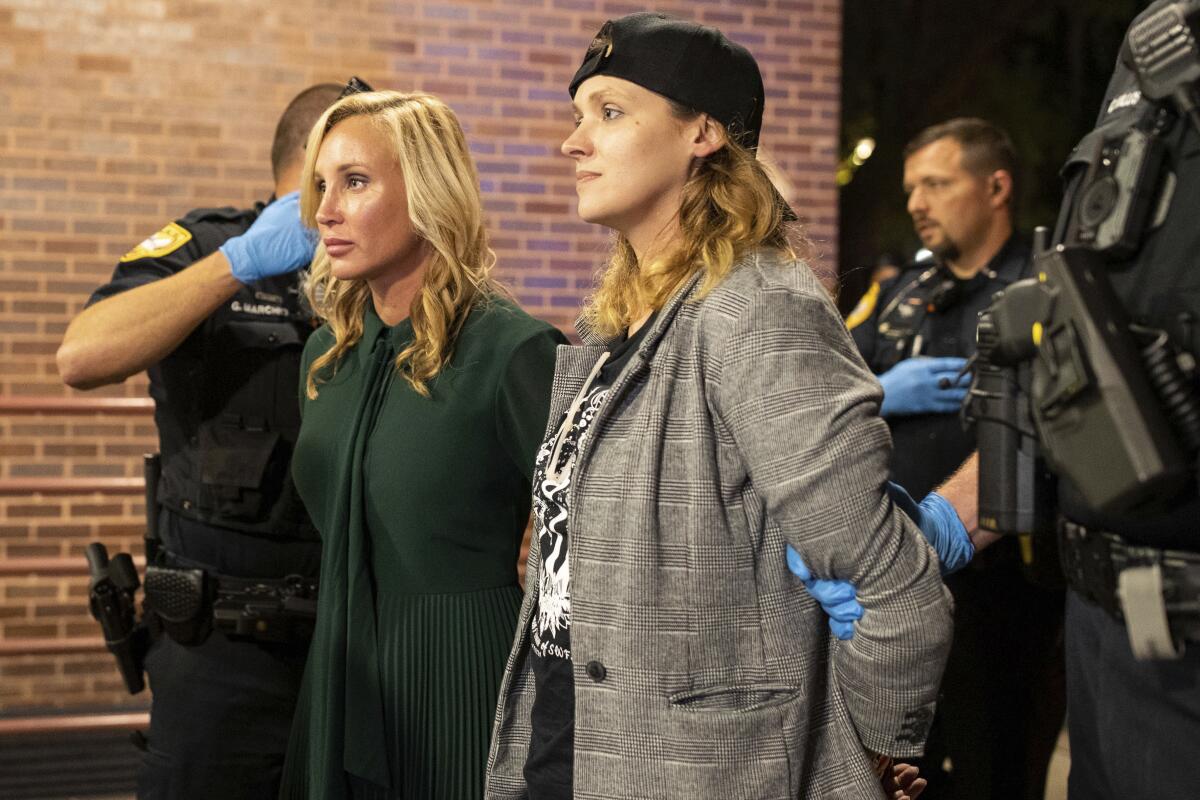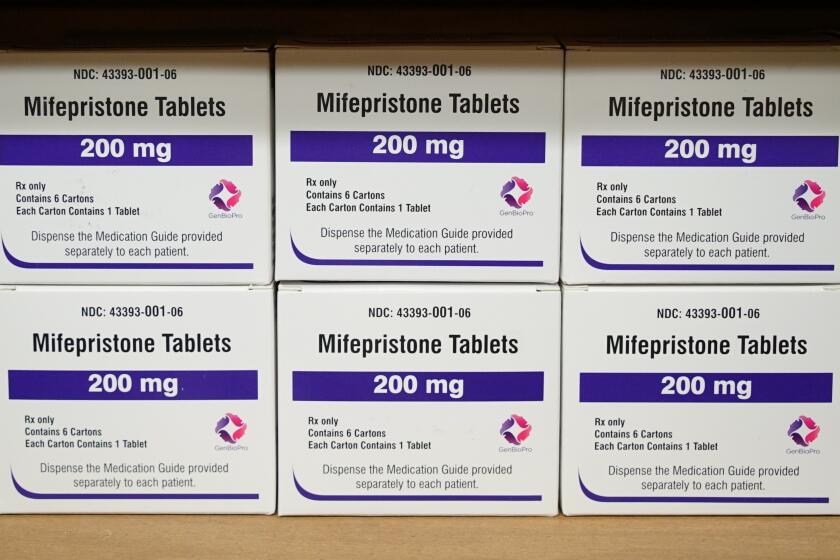Florida Senate passes 6-week abortion ban backed by DeSantis

- Share via
TALLAHASSEE, Fla. — The Florida Senate on Monday approved a bill to ban abortions after six weeks, a measure supported by Gov. Ron DeSantis as the Republican prepares to launch his expected presidential candidacy.
The vote prompted demonstrations at the state Capitol that resulted in the arrest of the leader of the Florida Democratic Party and a state senator by city police.
The proposal must still be approved by the House before it reaches the governor’s desk. Florida currently prohibits abortions after 15 weeks.
A six-week ban would more closely align Florida with the abortion restrictions of other Republican-controlled states and give DeSantis a political win on an issue important with GOP primary voters ahead of his potential White House run.
Florida Democrats and groups advocating for abortion rights say this proposal disproportionately affects low-income women and people of color.
The party said that Nikki Fried, chair of the Florida Democratic Party, and Lauren Book, Florida’s Senate minority leader, were arrested late Monday at a sit-in protest outside the Florida Capitol. Images shared on social media showed the two women and other demonstrators as they were handcuffed by police.
Abortion pills: European doctor vows abortion bans or court rulings won’t stop her from getting medications to U.S. states including Texas, California.
The Tallahassee Police Department said is a news release that protesters against the abortion ban were told they would have to leave after sunset, but 11 people refused to go and were arrested for trespassing. They did not identify them by name.
The bill would have implications for abortion access throughout the South. Alabama, Louisiana and Mississippi prohibit the procedure at all stages of pregnancy, and Georgia bans it after cardiac activity can be detected, which is at about six weeks.
“We live in a time where the consequences of our actions are an afterthought and convenience has been substitution for responsibility, and this is unacceptable when it comes to the protection of the most vulnerable,” said Florida state Sen. Erin Grall, a Republican who sponsored the bill.
Abortion pills: A Trump-appointed conservative judge’s upcoming ruling could have the biggest effect in blue states like California. What to know.
Democrats have conceded that they cannot stop the proposal from moving forward.
During debate earlier Monday, Book read her phone number aloud on the Senate floor, urging women to contact her office directly if they were considering abortion and needed to connect with healthcare providers.
“Please don’t take matters into your own hands. Do not put your safety at risk. No back-alley abortions,” Book said. “There are people and funds that will help you. No matter where you live, no matter how desperate of a situation you are in, no matter how helpless it may seem. I promise, you are not alone. Call my office.”
The proposal allows exceptions to save the life of the pregnant person and exceptions in the case of pregnancy caused by rape or incest until 15 weeks of pregnancy. In those cases, a patient would have to provide documentation such as a medical record, restraining order or police report.
It would require that the drugs used in medication-induced abortions — which make up the majority of those provided nationally — could be dispensed only in person by a physician.
The new bill would only take effect if the state’s current 15-week ban is upheld in an ongoing legal challenge that is before the state Supreme Court.
Republicans control a supermajority in the Legislature and have largely focused on DeSantis’ priorities during the ongoing legislative session. DeSantis is expected to announce his presidential candidacy after the session ends in May, with his potential White House run in part buoyed by the conservative policies approved in the statehouse this year.
More to Read
Sign up for Essential California
The most important California stories and recommendations in your inbox every morning.
You may occasionally receive promotional content from the Los Angeles Times.












